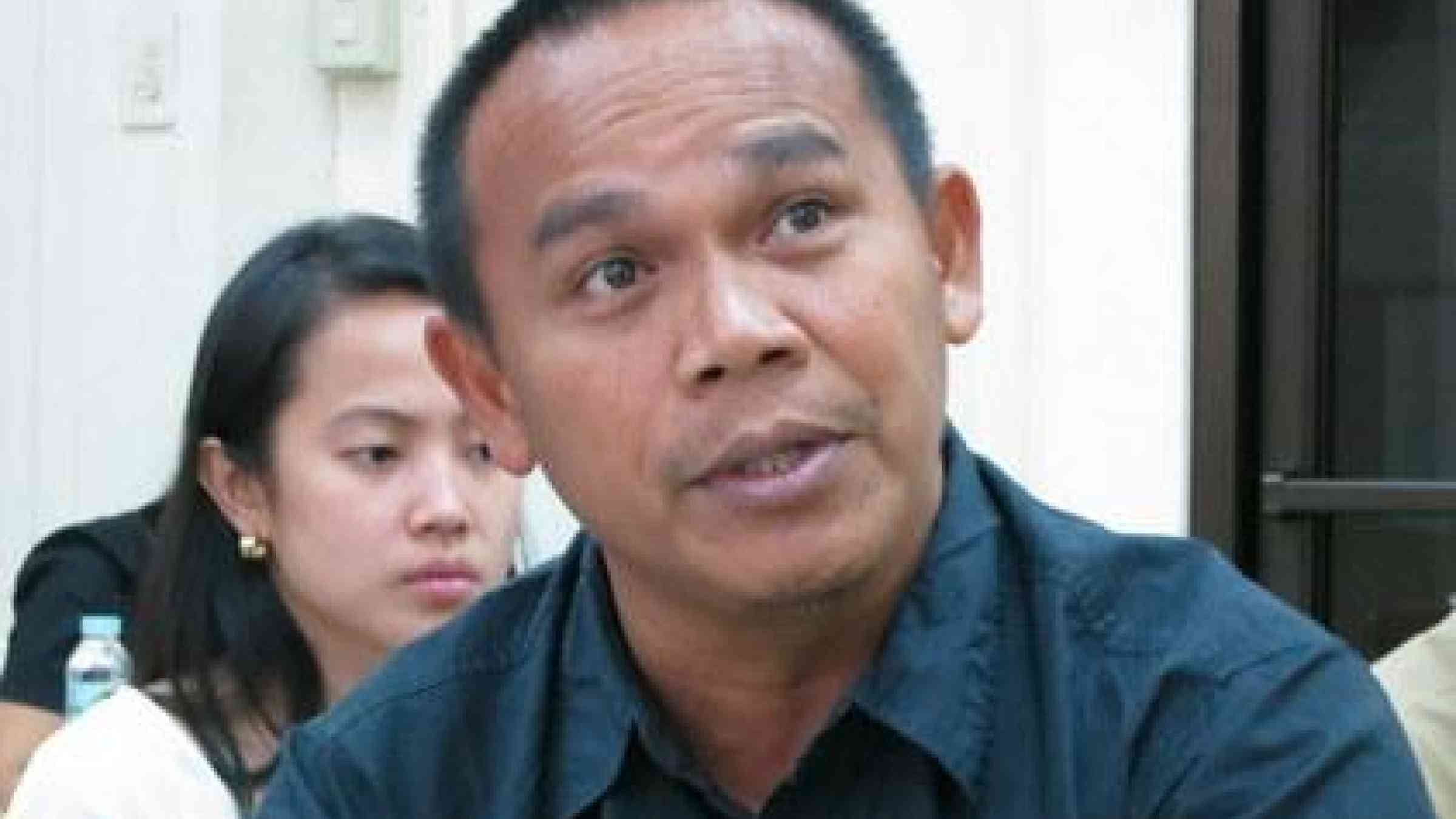GETI supports model Haiyan recovery effort

Affirmation: Resilience Taskforce Coordinator Baltz Tribunalo said the GETI training in Philippines has strengthened his resolve that ‘development is building resilience’.
INCHEON, 10 March 2014 – The Philippines province of Cebu is emerging as a model for recovery four months after Typhoon Haiyan devastated large parts of the country.
Cebu Resilience Taskforce Coordinator Baltz Tribunalo identified several factors behind progress, including vital capacity building support from the UN Office for Disaster Risk Reduction (UNISDR).
Expert trainers from UNISDR’s Global Education and Training Institute (GETI), based in Incheon, South Korea and International Recovery Platform, based in Kobe, Japan, provided hands-on mentoring at a Disaster Recovery Planning workshop in Cebu City, drawing on the province’s recovery plans as well as feeding in lessons learnt on resilience building from around the world.
“The most useful element of the training was its consistent message that disaster risk reduction has to have a central part in the complete package of recovery and rehabilitation,” said Mr Tribunalo, who is also adviser to Cebu Governor Hilario Davide III on climate smart disaster risk management.
“You can’t achieve recovery and rehabilitation without planning that is based on an accurate risk assessment. The workshop for me was an affirmation that the name of development is building resilience.”
Former Mayor of San Francisco Al Arquillano, credited with saving the lives of hundreds of people after organising the complete evacuation of Tulang Diyot island hours ahead of Typhoon Haiyan, appreciated the lessons from outside the Philippines.
“We heard about disasters in Indonesia and Japan and other countries, which was really useful. I took two main points from the training: first it is no good having organisational structures unless they have capacity; and second, we all should remember to go back to basics and focus on mobilising citizens to prevent the next disaster,” Mr Arquillano said.
Over three days GETI shepherded the 48 participants, including several mayors as well as technical experts, from Cebu as well as the neighbouring provinces of Leyte and Samar.
Governor Davide III established the Cebu Resilience Taskforce – known as Paglig-on in local language – with an explicit mandate to engage consistent participation from local communities.
The taskforce comprises experts from livelihoods, shelter, health and other areas and is steering a vision of redevelopment based on resilience to climate change and disaster risk.
The UNISDR Office for North East Asia and GETI opened in 2011 with the valuable support of the National Emergency Management Agency (NEMA) of the Republic of Korea and the City of Incheon.
The Incheon Office provides technical support, conducts capacity development and training initiatives, carries out advocacy, enhances knowledge management and the sharing of best practice; and promotes partnerships.
GETI runs a series of programmes and initiatives, including Mainstreaming Adaptation and Disaster Reduction into Development (MADRiD); Collaborative Learning Initiative for Cities (CLIC); Sustainable Training Institutions for Resilience (STIR); Disaster Risk Reduction in North East Asia; Post-2015 consultations and HFA monitoring and review process; and support to trilateral DRR meetings between China, Japan, and Republic of Korea.
Explore further
Also featured on
Is this page useful?
Yes No Report an issue on this pageThank you. If you have 2 minutes, we would benefit from additional feedback (link opens in a new window).